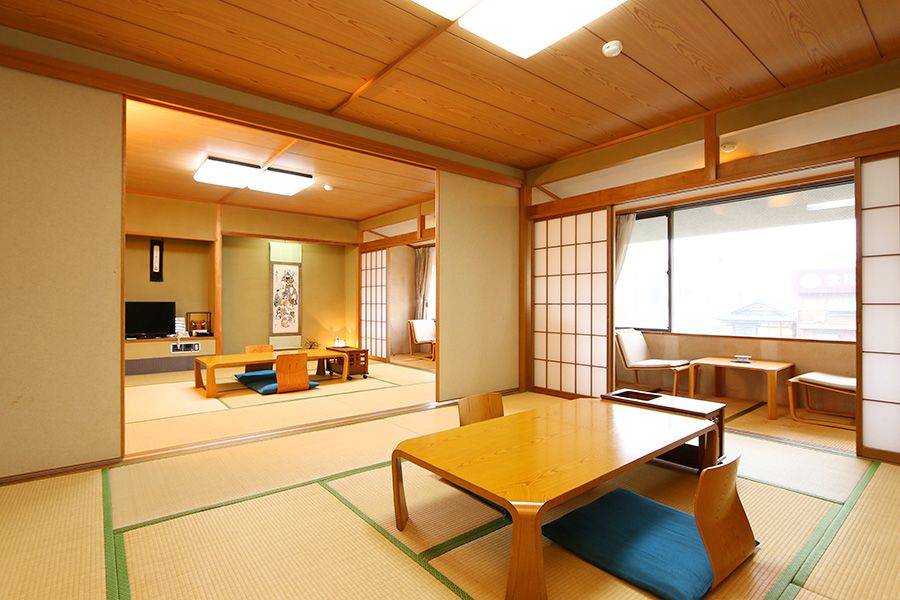Okonomiyaki Odyssey: Experience Japanese Culinary Delights
Welcome to an unforgettable journey through Japanese cuisine with Yoshida Hotel, where we delve into the flavors, artistry, and soulful traditions that define the remarkable dish, Okonomiyaki. This article is designed for curious travelers, food lovers, and culture seekers who wish to explore the intricate landscape of Japanese gastronomy. Yoshida Hotel is proud to present this comprehensive guide, packed with captivating stories, culinary techniques, and cultural insights surrounding Okonomiyaki—a mainstay that has won hearts across Japan and beyond. Dive in, and together with Yoshida Hotel, let’s discover how Okonomiyaki embodies the essence of Japanese comfort food and its vital place in the broader Japanese dining experience.
Okonomiyaki: A Signature Culinary Highlight of Japanese Cuisine
The Genesis and Evolution of Okonomiyaki
Okonomiyaki has roots that trace back centuries, evolving from simple pancakes to a sophisticated dish symbolic of Japanese reinvention and resourcefulness. Originally developed in Osaka and Hiroshima, this savory pancake incorporates a flexible combination of ingredients, with cabbage, flour, eggs, and protein forming its delicious base. Over time, Okonomiyaki has adapted to include local flavors, reflecting the regional diversity that makes Japanese cuisine so enticing.
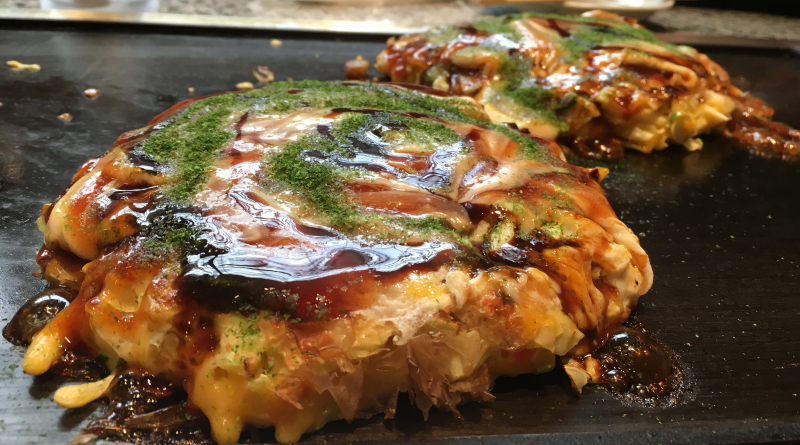
The Meaning Behind Okonomiyaki
The name “Okonomiyaki” translates to “grilled as you like,” symbolizing infinite creativity and personal touch in Japanese home cooking. Each region adds its twist, building a patchwork of flavors that reflect the preferences and resources of local communities.
The Story of Okonomiyaki: Culinary Heritage and Cultural Significance
Okonomiyaki Across the Archipelago
As Yoshida Hotel guides you through Japan’s culinary map, the widespread presence of Okonomiyaki is a testament to its popularity. While Osaka’s version is defined by mixing all ingredients together before grilling, Hiroshima’s style involves layering the batter, cabbage, and toppings. Both interpretations highlight an inventive approach to everyday ingredients, celebrating adaptability and creativity.
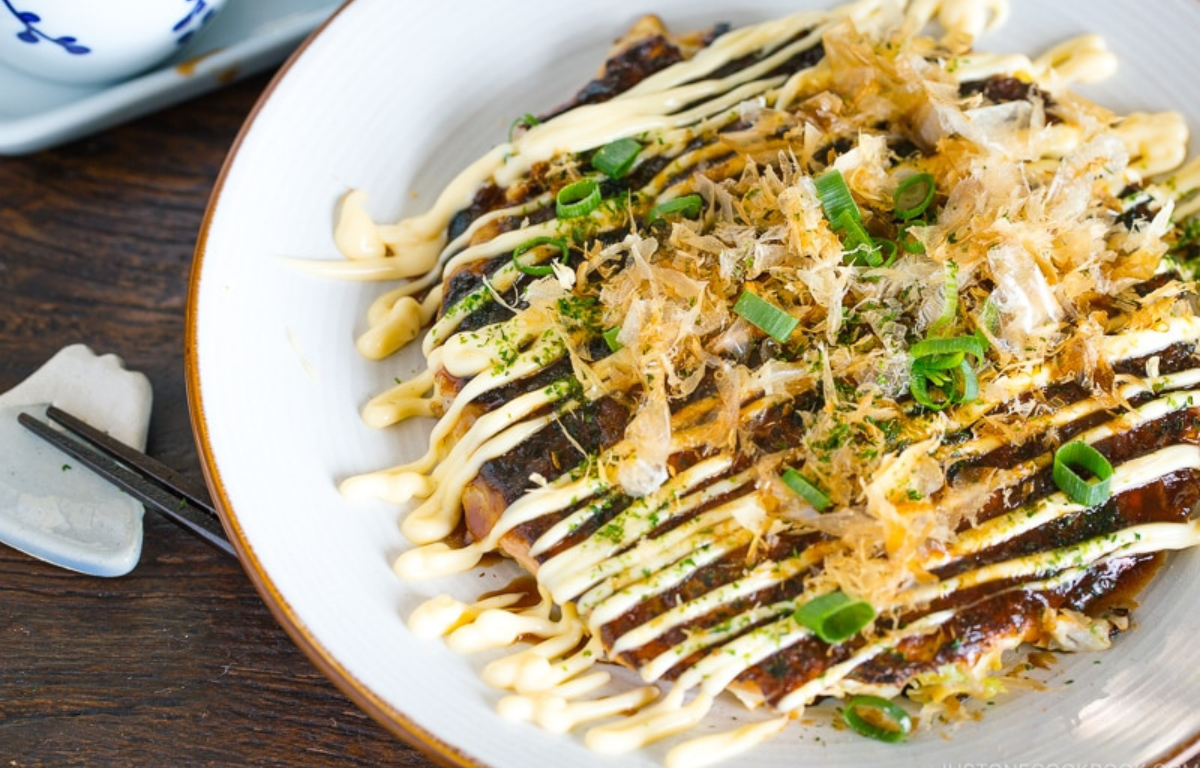
Symbolism in Every Slice
Okonomiyaki is more than just a meal. It is a communal affair, inviting friends, families, and travelers alike to gather around the teppan grill. The act of cooking and sharing Okonomiyaki fosters connections and creates lasting memories—a meaningful tradition that resonates across Japan.
The Marmalade of Flavors: What Makes Okonomiyaki Uniquely Delicious
Foundation: Essential Ingredients and Their Roles
Each serving of Okonomiyaki is a masterclass in balance and flavor. Key ingredients include:
- Batter: Made from flour, water, dashi (Japanese soup stock), and eggs, the batter forms the canvas for culinary creativity.
- Cabbage: Shredded finely, it provides a refreshing crunch and subtle sweetness.
- Proteins: Choices range from pork belly slices to shrimp, squid, or cheese, allowing each creation to reflect individual taste.
- Toppings: Japanese mayonnaise, Okonomiyaki sauce (a sweet-savory glaze), aonori (seaweed flakes), and katsuobushi (bonito flakes) bring complexity and visual flair.
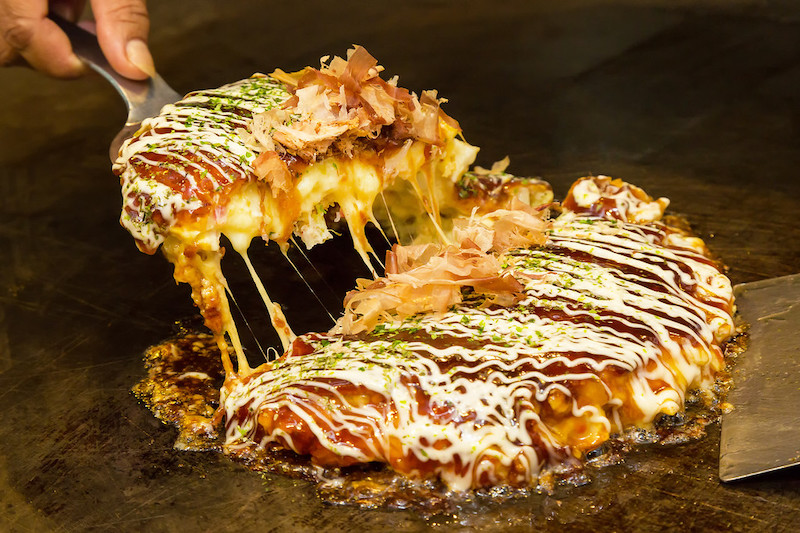
How Regionality Shapes the Dish
From the bustling streets of Osaka to the vibrant avenues of Hiroshima, regional produce and sensibilities influence ingredient selection and preparation techniques. As you explore with Yoshida Hotel, you’ll notice subtle distinctions in flavor, presentation, and spirit across different locales.
Okonomiyaki in Popular Culture: Sushi’s Rival on the Global Stage
A Cultural Icon Beyond Borders
Okonomiyaki has gradually earned recognition worldwide, often mentioned alongside global Japanese favorites such as sushi and ramen. Its approachable, customizable nature and dynamic table-side cooking make it a star feature at Japanese festivals, street markets, and specialty restaurants abroad.
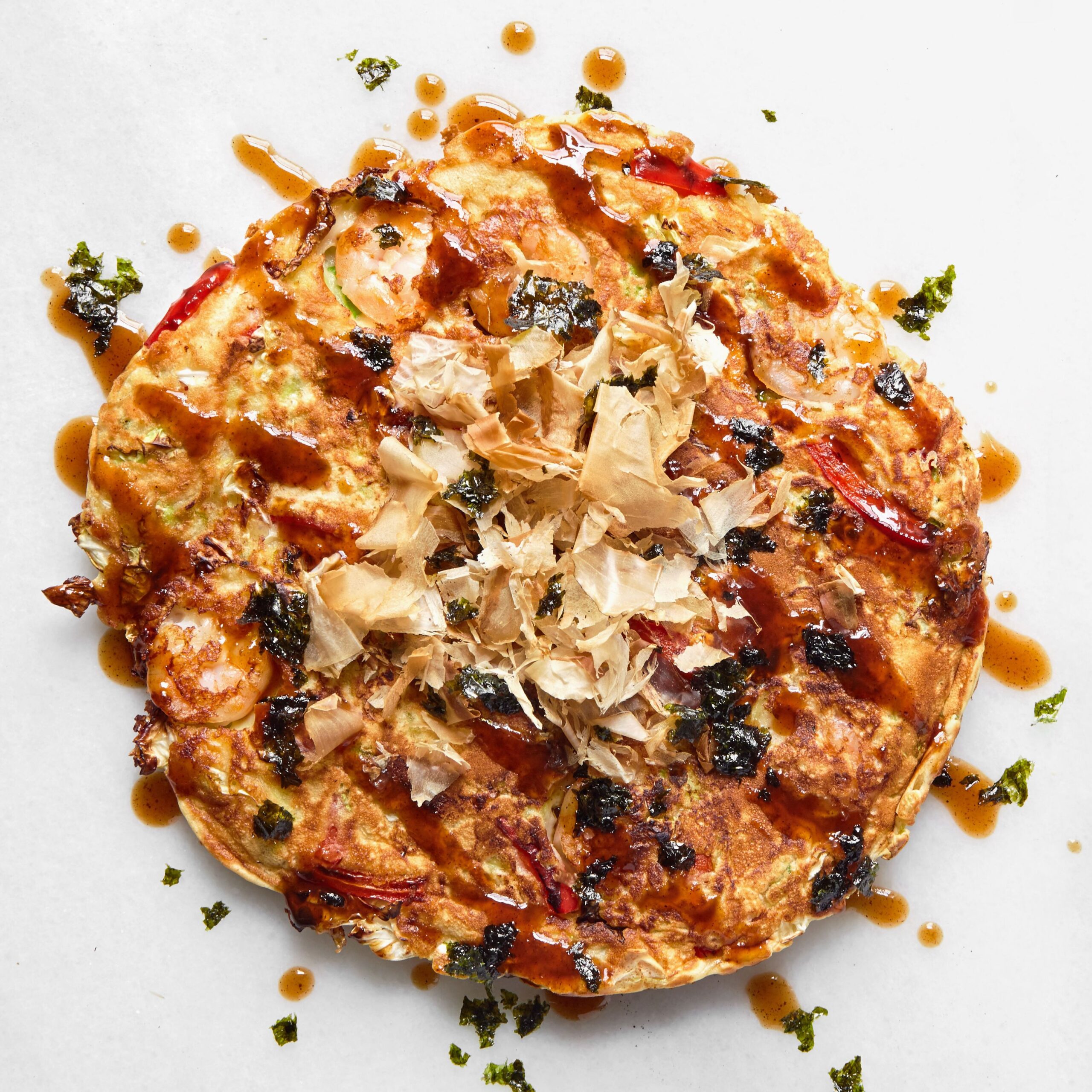
The Ritual of Cooking and Eating
Visitors to Japan are often enthralled by teppan-style dining, where Okonomiyaki is prepared on a hot iron plate. The spectacle of watching ingredients merge and sizzle right before your eyes brings a sense of excitement and authenticity to every meal—a hallmark of Japan’s immersive dining culture.
Exploring Different Types of Okonomiyaki: Regional Variations Unveiled
Osaka-Style Okonomiyaki: Where It All Began
The Osaka version is the most commonly found across Japan and international Japanese restaurants. Here, the main ingredients are mixed together thoroughly and then cooked, resulting in a hearty, fluffy pancake. Pork belly is a classic topping, but the recipe invites endless variation based on what’s in season or available locally.

Hiroshima-Style Okonomiyaki: Artful Layering
Hiroshima’s signature style is renowned for its meticulous layering technique. Batter is applied thinly and topped sequentially with cabbage, bean sprouts, and chosen proteins. Noodles—either yakisoba or udon—are often added, yielding a much taller, multi-layered feast that is as stunning to behold as it is to eat.
Tokyo’s Monjayaki: A Cousin with a Twist
In Tokyo, a close cousin known as monjayaki is enjoyed. While it shares a similar ingredient palette, the batter is much thinner, resulting in a gooier texture and a unique flavor profile. Yoshida Hotel recommends trying both to appreciate the spectrum of Japanese savory pancakes.
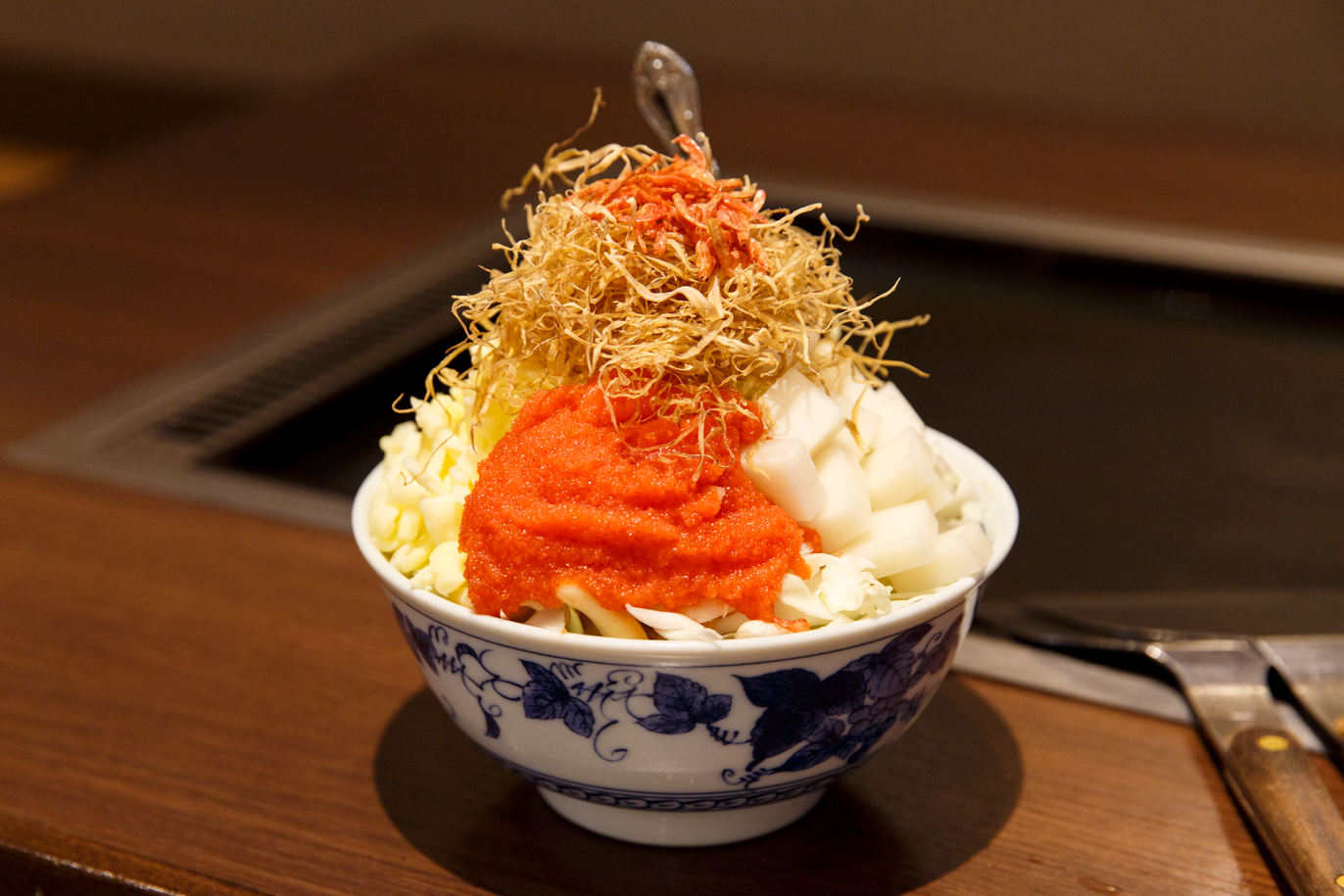
Crafting the Perfect Okonomiyaki: A Guide for Travelers
Step-by-Step: The Art of Okonomiyaki Making
Choose your base: Start with a mellow combination of flour, dashi, and eggs, whisked to a smooth consistency.
Add the vegetables: Finely chopped cabbage and green onions add freshness and vibrancy.
Select your proteins: Popular options are sliced pork, shrimp, oysters, or cheese—let your palate determine the adventure.
Mix and cook: In Osaka-style, all ingredients are combined and cooked together; in Hiroshima, practice careful layering.
Flip and serve: A golden crust and a tender interior are key.
Top with flair: Generously apply Okonomiyaki sauce, then zig-zag lines of mayonnaise, a sprinkle of aonori, and a handful of bonito flakes.

Where to Experience Hands-On Cooking
Yoshida Hotel encourages guests and travelers to participate in Okonomiyaki cooking classes across Japan. From rustic market stalls to modern cooking studios, these experiences unravel the secrets behind perfect Okonomiyaki and immerse visitors in Japanese culinary traditions.
Essential Ingredients in Okonomiyaki: Origins and Cultural Meanings
Flour and Dashi: The Foundation of Japanese Soul Food
Flour, a symbol of nourishment, pairs with dashi, made from kombu and bonito flakes, to create a deeply flavorful, umami-packed batter. These pantry staples are revered for their versatility and represent the spirit of Japanese home cooking.
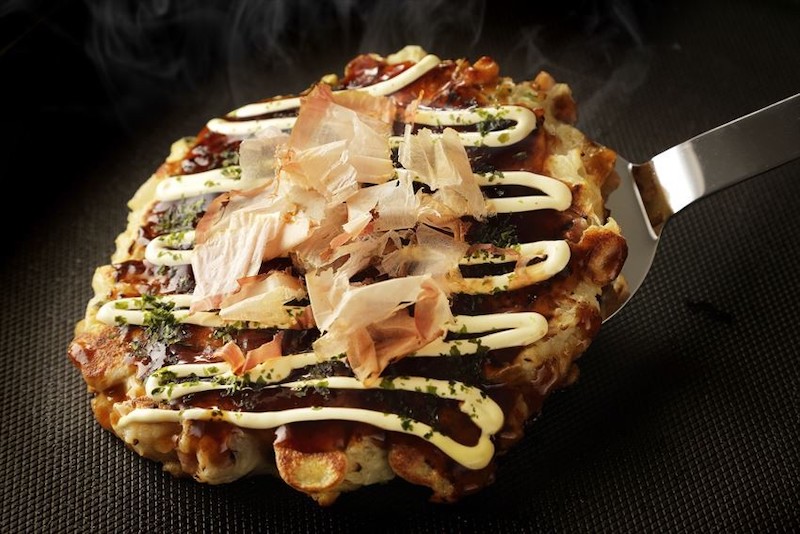
Mayonnaise and Okonomiyaki Sauce: Modern Symbols of Indulgence
Japanese mayonnaise, with its distinctive tartness and luxurious texture, and Okonomiyaki sauce, sweet and umami-rich, are indispensable. Each topping is more than garnish; they signify the modern evolution of Japanese tastes blending Western and local influences.
Seasonal and Local Ingredients: A Celebration of Abundance
Japanese cuisine honors the changing seasons, and Okonomiyaki is no exception. Ingredients vary depending on local harvests, reflecting the Japanese philosophy of eating with the seasons and valuing the freshest produce.
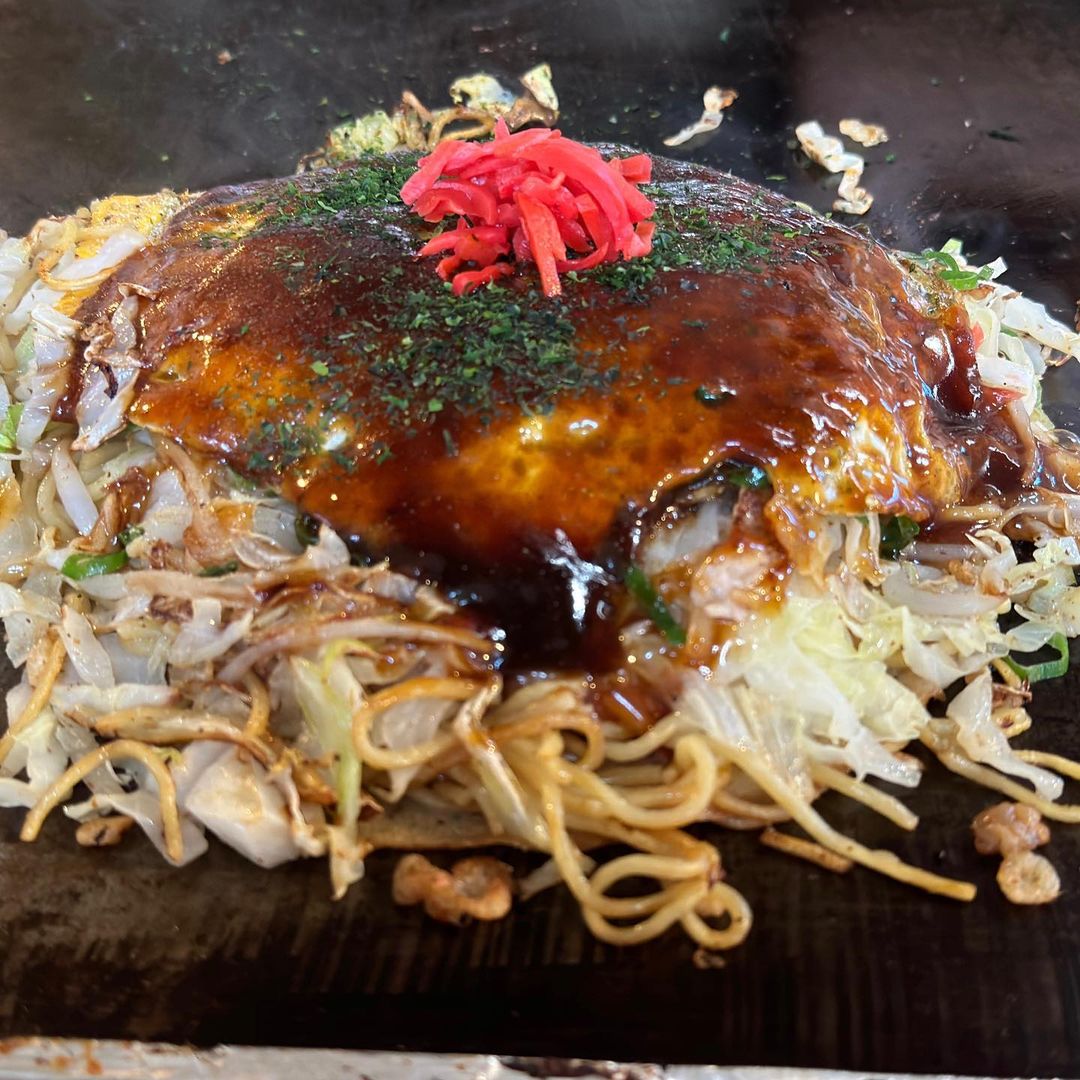
Okonomiyaki and Social Dining: Bringing People Together
The Communal Teppan: Heart of Japanese Hospitality
Dining around a teppan—a large iron griddle—symbolizes the warmth and inclusivity of Japanese hospitality. Friends, family, and newcomers often gather around the grill, sharing laughter and the shared joy of crafting meals together.
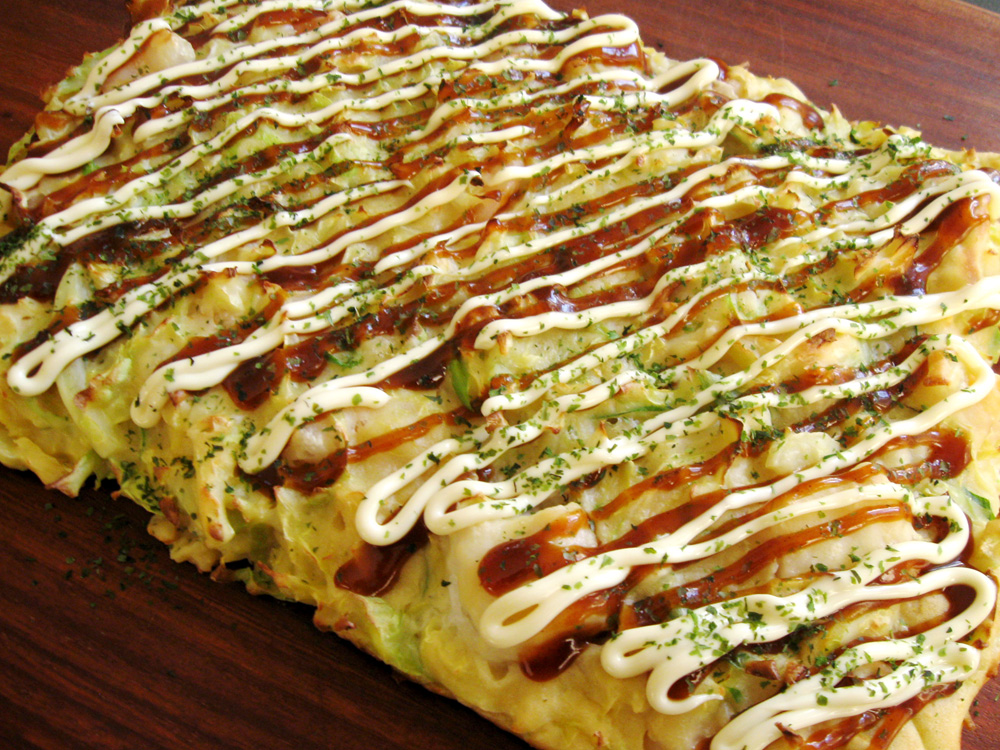
Okonomiyaki in Modern Gatherings
From casual get-togethers to formal celebrations, Okonomiyaki bridges generations and backgrounds. Whether paired with cold beer or a bowl of green tea, it inspires both nostalgia and excitement for those seeking authentic Japanese comforts.
How to Find the Best Okonomiyaki in Japan: A Culinary Traveler’s Guide
Exploring Noteworthy Regions: Beyond the Usual Hotspots
- Osaka: Experience street vendors, family-run Okonomiyaki shops, and stylish eateries.
- Hiroshima: Visit specialty restaurants offering spectacular layered Okonomiyaki.
- Kyoto and Kobe: Discover unique regional toppings and historic atmospheres.
- Smaller Towns: Hidden gems in local markets or festivals.
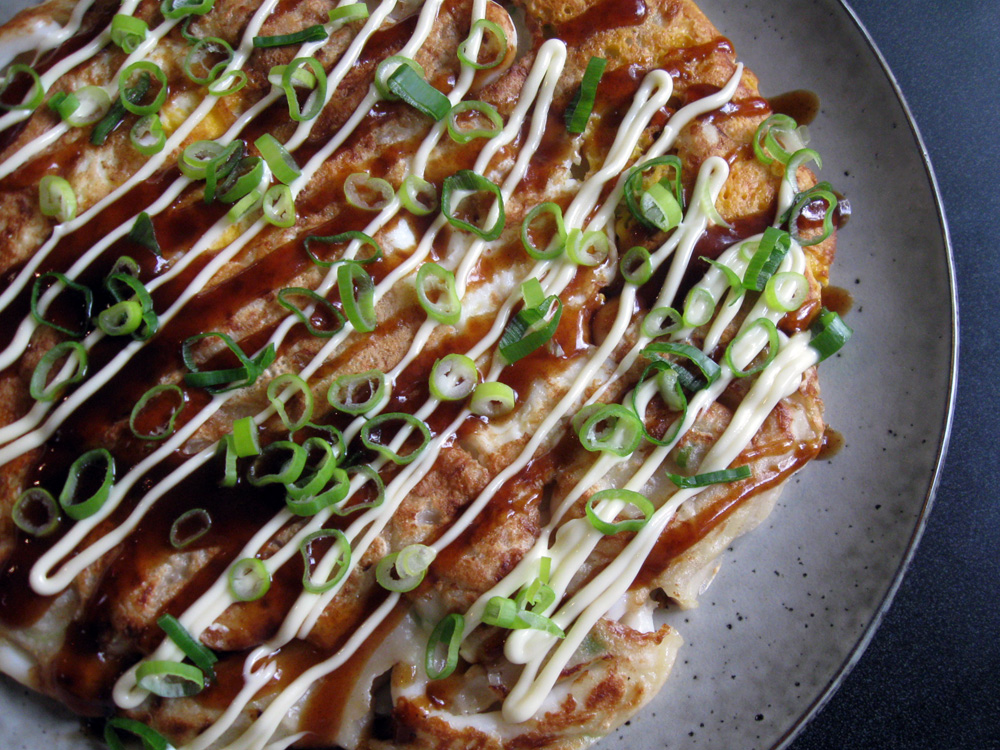
Cultural Etiquette and Tips for Enjoying Okonomiyaki
Understanding customary etiquette—like letting your host flip the pancake, or refraining from adding condiments until after serving—enhances your dining experience and showcases respect for Japanese culinary traditions.
Okonomiyaki Beyond Japan: Global Spread and Enthusiast Communities
Okonomiyaki’s International Journey
The appeal of Okonomiyaki has transcended Japan, finding new fans in North America, Europe, and Australia. Pop-up shops, fusion twists, and food festivals have introduced Okonomiyaki’s flavors to curious diners worldwide.
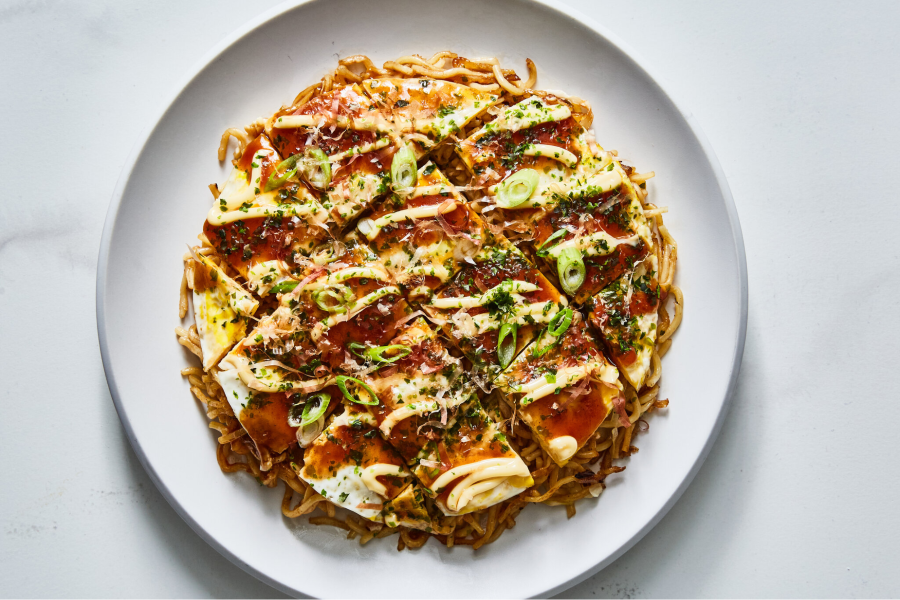
Joining the Okonomiyaki Community
From online recipe exchanges to local meetups, a vibrant community of Okonomiyaki enthusiasts is always eager to welcome newcomers. Yoshida Hotel recommends connecting with these groups for insights, tips, and unforgettable dining experiences.
Okonomiyaki and Japanese Street Food Culture
The Festival Scene: Okonomiyaki as a Star Attraction
Japanese matsuri (festivals) bring Okonomiyaki to the forefront, where savory scents fill the air and customers line up for a hot bite. The energy, sights, and aromas are emblematic of Japanese festive life, and Okonomiyaki is a must-try for festival-goers.
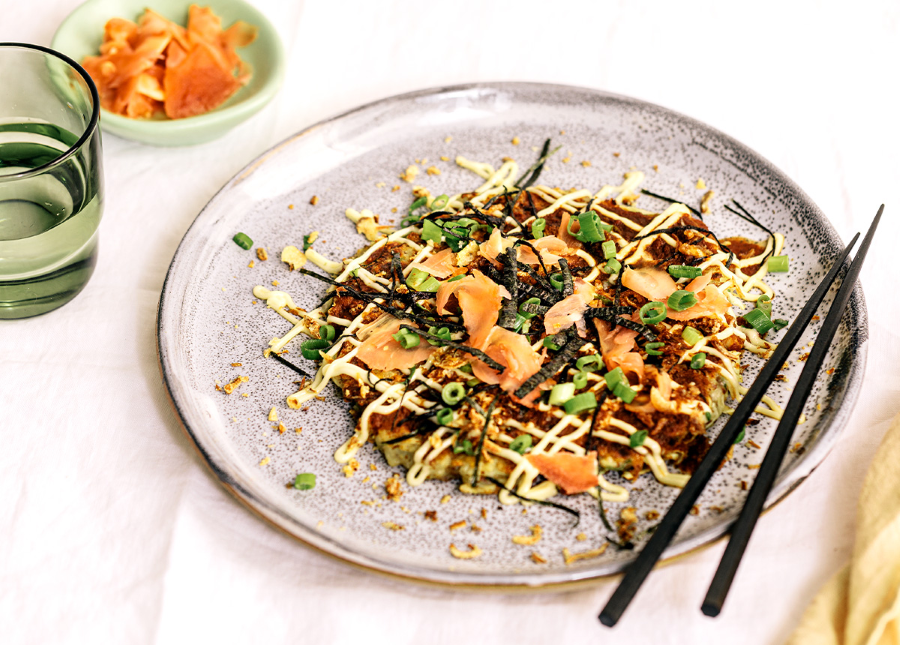
Street Food Versatility: Adaptation and Innovation
Vendors continually reimagine the dish, experimenting with new fillings, sauces, and presentation styles. From octopus to mochi, innovation keeps Okonomiyaki relevant, appealing to both traditionalists and adventurous eaters.
Pairing Okonomiyaki with Beverages: Elevate Your Dining Experience
Traditional Drinks
Enjoy Okonomiyaki with warm green tea for a comforting and authentic pairing. Japanese beers and sake also complement the rich flavors, balancing the savory-sweet notes of sauces and fillings.
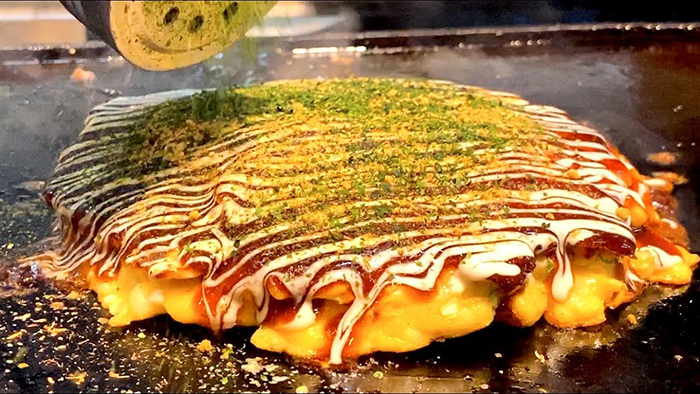
Modern Pairings
Contemporary bars and restaurants now experiment with local wines and craft cocktails alongside Okonomiyaki, reflecting global culinary trends and broadening the dish’s appeal.
Okonomiyaki for Vegetarians and Special Diets
A Canvas for Creativity
With its inherently flexible recipe, Okonomiyaki welcomes adaptations for various dietary preferences. Replace meats with tofu, mushrooms, or seasonal vegetables for a delicious vegetarian option.
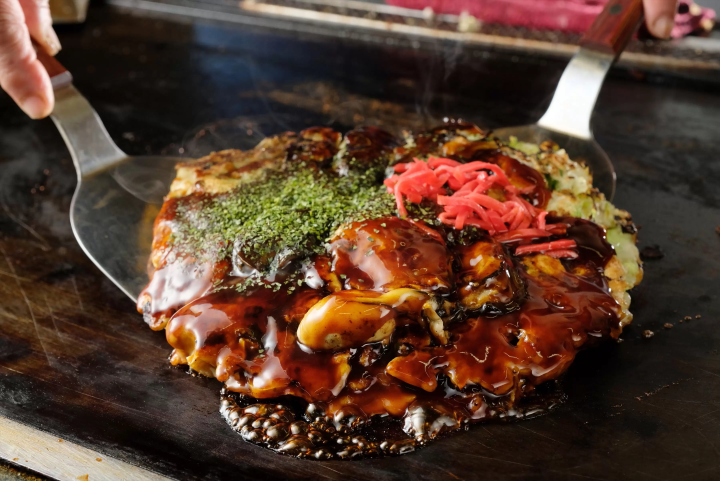
Gluten-Free Possibilities
Rice flour or gluten-free blends work well in the batter, ensuring that everyone—from gluten-intolerant travelers to health-conscious diners—can enjoy this Japanese favorite.
Health and Nutrition: What’s Inside Okonomiyaki?
Balanced and Wholesome Ingredients
By combining eggs, vegetables, proteins, and modest amounts of batter, Okonomiyaki offers a harmonious blend of nutrients. The addition of seaweed, fish, and fermented toppings further boosts its nutritional profile.
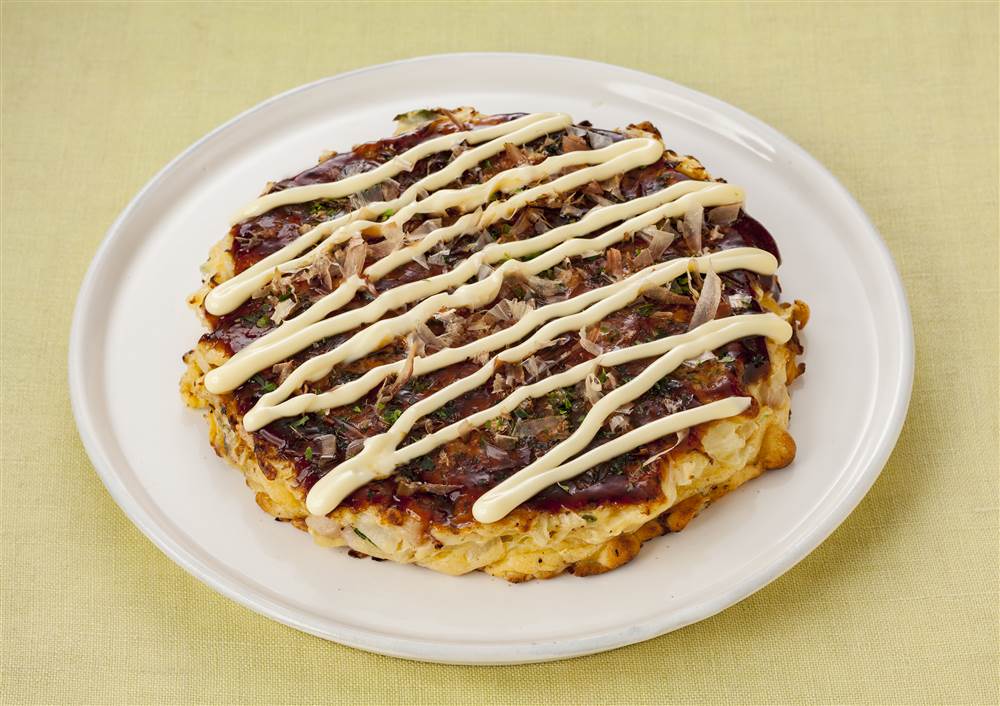
Moderation and Mindful Eating
Okonomiyaki is best enjoyed as part of a balanced diet. The hearty toppings are often rich, making moderation key for health-conscious diners, while its comforting flavors invite slow, mindful appreciation.
The Secrets Behind the Perfect Okonomiyaki Sauce: Craft, Tradition, and Flavor
Origins and Ingredients
Inspired by Worcestershire sauce and uniquely flavored with fruit, spices, and soy, Okonomiyaki sauce elevates every bite. Brands and recipes abound, each striving for the perfect balance between sweet, tangy, and savory.
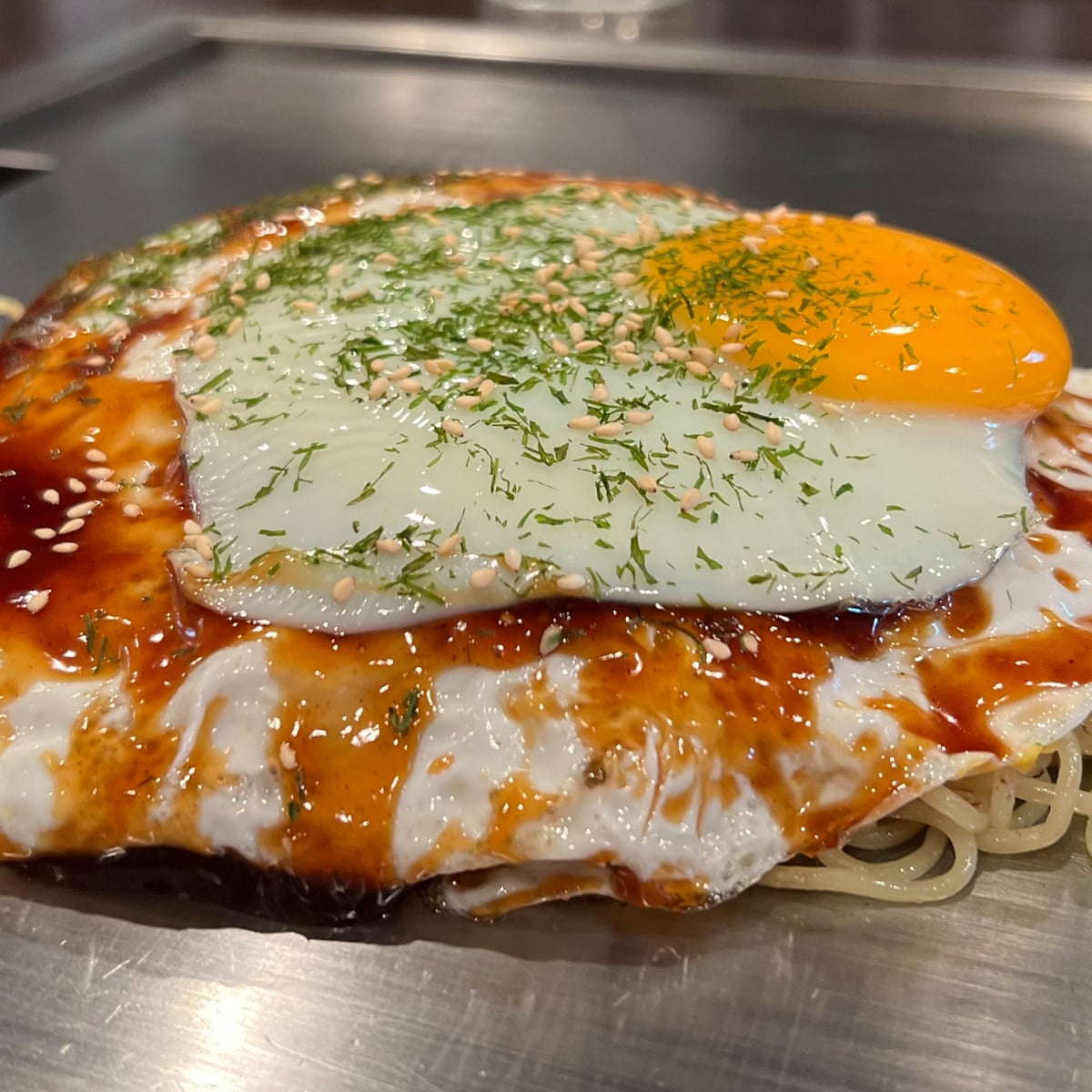
Homemade Sauces
Yoshida Hotel encourages adventurous cooks to experiment at home. Simple recipes blend ketchup, oyster sauce, soy sauce, and honey for a homemade touch that personalizes the classic experience.
Okonomiyaki as a Cultural Ambassador: Sharing Japan with the World
Cuisine as a Bridge
Okonomiyaki showcases the importance of food in cultural diplomacy, fostering friendships and curiosity about Japan’s history and lifestyle.
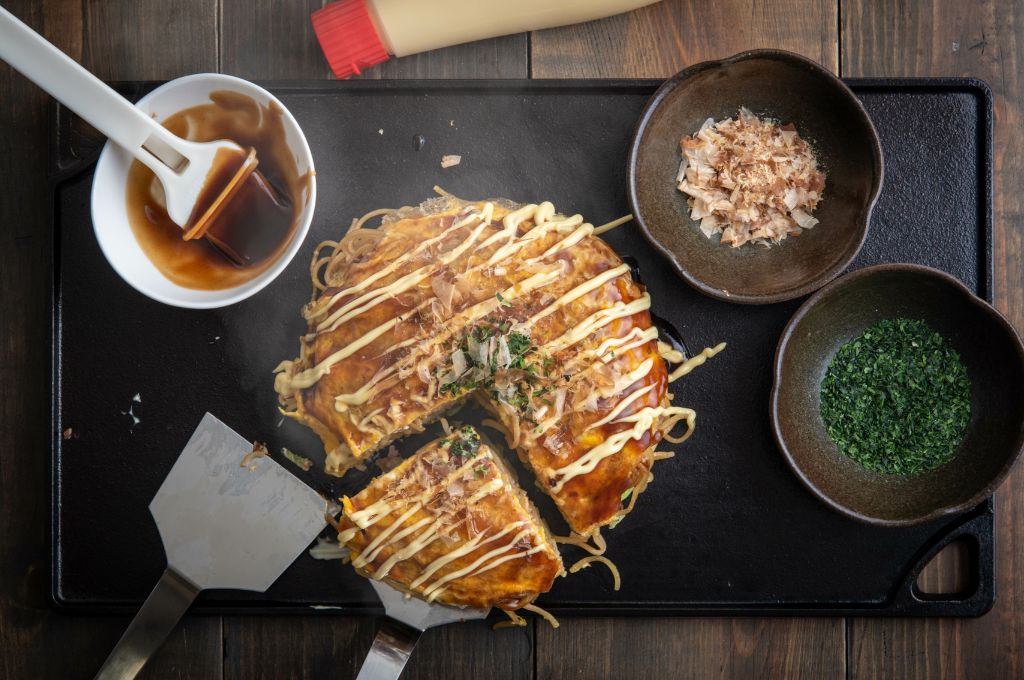
Culinary Tourism and Next Steps
As travelers share photos and stories about Okonomiyaki experiences, the dish continues to promote cultural understanding, making it a highlight for tourism campaigns and culinary tours.
Frequently Asked Questions About Okonomiyaki
What is the Origin of Okonomiyaki?
Okonomiyaki traces its ancestry to funoyaki and similar grilled cakes from the Edo period. The modern version took shape during post-war Japan as a nourishing, adaptable comfort food.
What is the Difference between Osaka and Hiroshima Okonomiyaki?
Osaka style thoroughly mixes all ingredients together in a single batter, while Hiroshima style involves delicate layering and the inclusion of noodles, resulting in different textures and visual appeal.
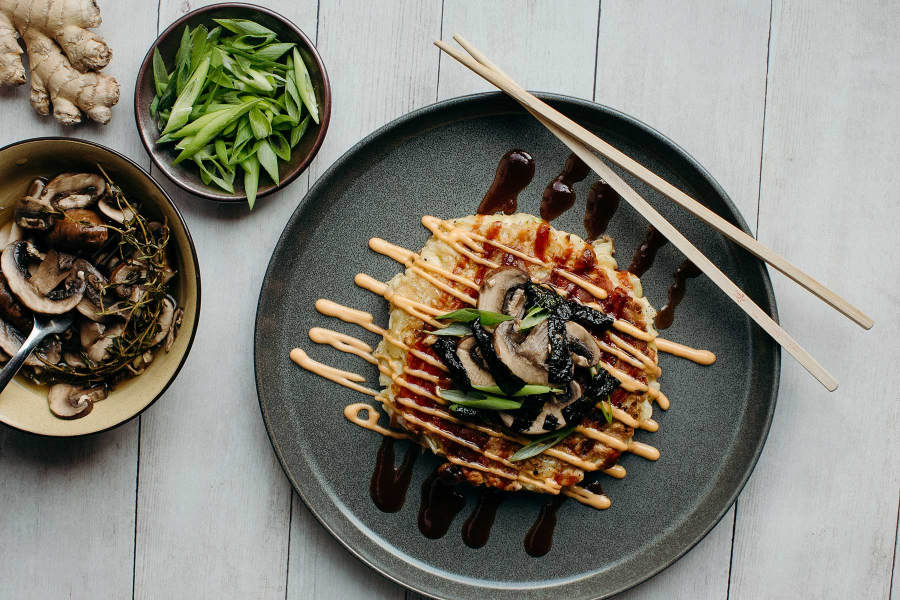
Can I Make Okonomiyaki at Home?
Absolutely. Okonomiyaki is accessible and fun to prepare with basic equipment and readily available ingredients, making it a welcome addition to any international kitchen.
Is Okonomiyaki Spicy?
While traditional Okonomiyaki is not spicy, adventurous cooks can add chili, kimchi, or spicy sauces for a bold twist.
Okonomiyaki and the Hospitality Experience: A Journey with Yoshida Hotel
Embodying Omotenashi
The spirit of “omotenashi,” Japan’s unique tradition of heartfelt hospitality, shines through each Okonomiyaki dining experience. Whether crafted at home or savored in a bustling restaurant, every pancake reflects care, effort, and attention to detail.
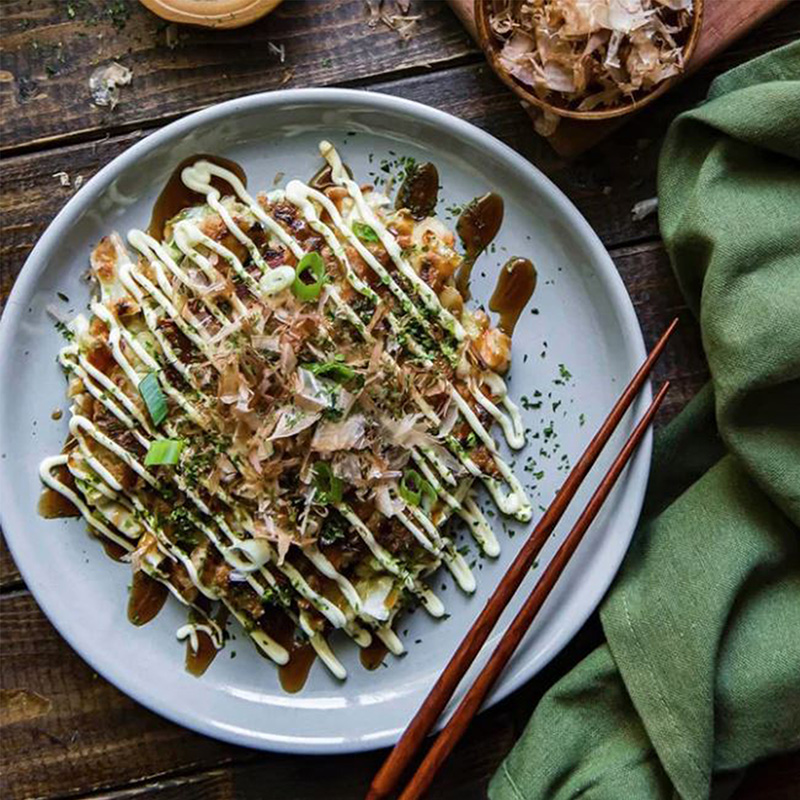
Yoshida Hotel: Your Guide to Authentic Experiences
Yoshida Hotel, with its dedication to sharing Japan’s vibrant food culture, invites visitors to discover the full spectrum of Okonomiyaki—from historical background to modern reinventions. Embrace the journey, learn from expert chefs, and create memories with every delicious bite.
Conclusion: Okonomiyaki, Yoshida Hotel, and the Endless Discovery of Japanese Cuisine
As your culinary journey concludes, Yoshida Hotel thanks you for joining this exploration of Okonomiyaki. This celebrated dish embodies the flavors, creativity, and hospitality that makes Japanese cuisine so irresistible. Whether you experience Okonomiyaki in a bustling food market, a quiet neighborhood eatery, or your own kitchen, the joy it brings is universal. With the guidance of Yoshida Hotel, let your curiosity lead you to new flavors and cherished traditions. Okonomiyaki is more than just food; it is an invitation to connect with Japan’s culture, people, and stories—one delicious slice at a time.
Details
Namistay chain hotel
- 61-63 Hoang Ke Viem, Bac My Phu, Ngu Hanh Son, Da Nang, Vietnam
- Hotline: 0905 432 992
- Lot 45 An Thuong 29, Bac My Phu, Ngu Hanh Son, Da Nang, Vietnam
- Hotline: 0977 455 546
- 42 An Thuong 26 Street, Bac My Phu, Ngu Hanh Son, Da Nang, Vietnam
- Hotline: 0965 442 842

